
Kiril Gantchev

Introduction
The journey towards a sustainable future relies heavily on innovating our current waste management practices. True progress can only be achieved by not only refining waste sorting methods but also ensuring that post-disposal waste follows an accountable and responsible path. This blog post dives into how Ameru.ai's AI-powered smart bins empower stakeholders to participate actively in more efficient waste management and contribute to environmental sustainability. We demonstrate how Ameru's AI-powered bins and waste management processes, deployed at the Betahaus co-working space, enable the efficient participation of HCS's cleaning staff in order to guarantee the recyclables are diverted to and recovered by ECOPACK.
The Problem
Co-working spaces often grapple with the inefficiencies of waste management. Conventional practices often lead to improper segregation, resulting in recyclable waste ending up in landfills, escalating operational costs, and adversely impacting the environment. Further, there's often ambiguity about the ultimate destination of the waste post-disposal, creating mistrust in waste management systems. Our study aims to tackle these challenges and enhance the transparency and efficiency of the waste management chain.

Our collaboration with ECOPACK ensures that the waste disposed of in Ameru's smart bins follows a responsible path, with recyclable materials sent to the recycling company's bins and extracted for value.
The Solution
In collaboration with our customer, Betahaus, we implemented a unique Cleaning Staff Incentive Pilot Program facilitated by Ameru.ai's AI-powered smart bins. These smart bins, using dynamic learning and advanced analytics, ease the waste sorting and tracking process, reducing the workload of the cleaning staff and increasing their efficiency. The incentive program offers an easy way for the cleaning staff to make an impact, reduces their workload, and rewards them!

The cleaning staff from HCS was motivated by an easy-to-follow procedure and a rewards system:
- Take the color-coded bag out of the bin
- Take the color-coded bag to the correct outside dumpster
- 3"Proof of Disposal" by taking a picture/scanning the QR code of the bag and the bin
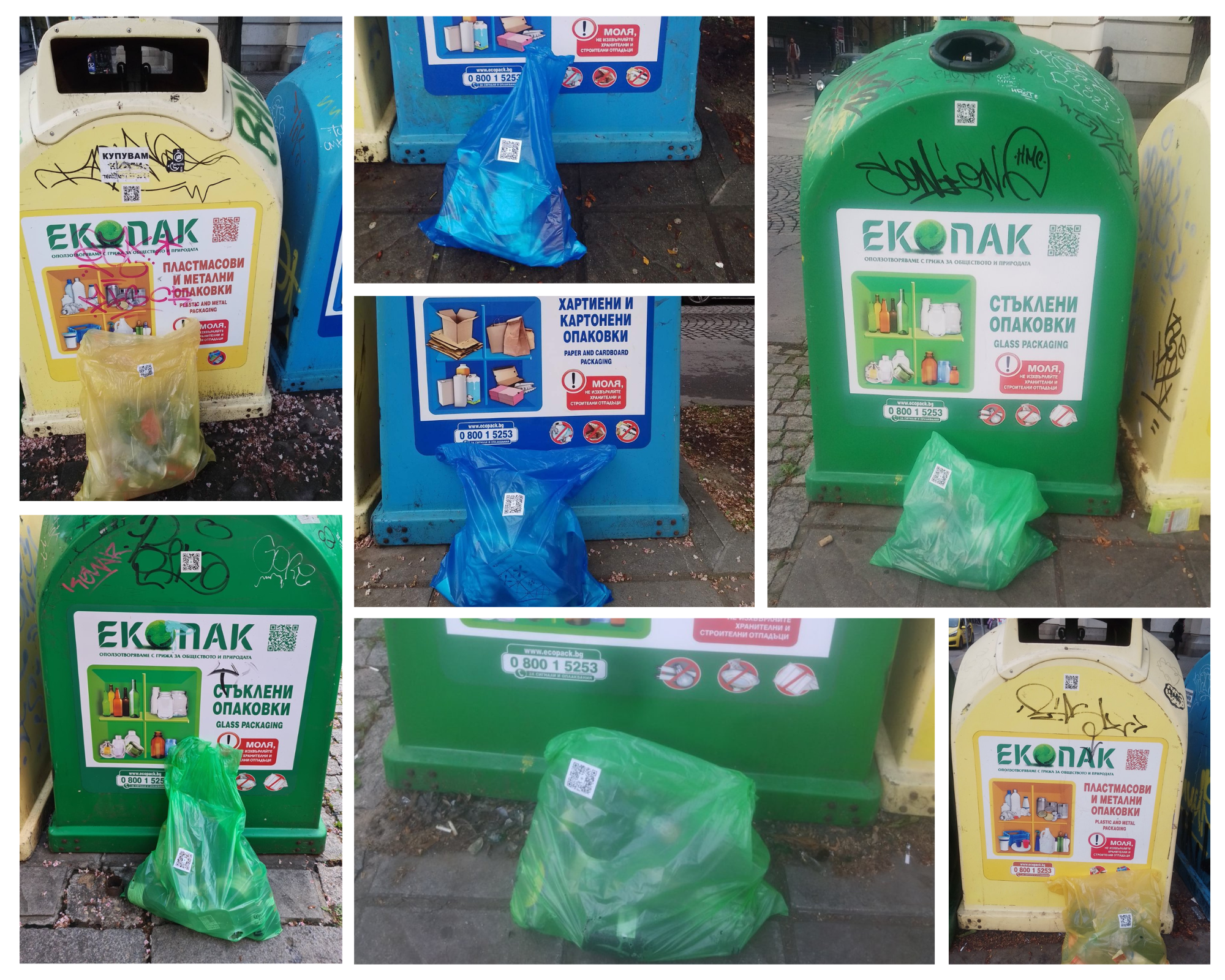
This unified stakeholder approach not only significantly reduced the workload of the cleaning staff by keeping recyclable materials separate from landfill waste, but also empowered them to make a meaningful environmental impact while earning rewards.
The Venue
The venue for this research was Betahaus, a well-known co-working space in Sofia, Bulgaria. The experimental period spanned one month, from May 25, 2023, to June 25, 2023, with data collected from the performance of a strategically placed smart bin located in the kitchen.
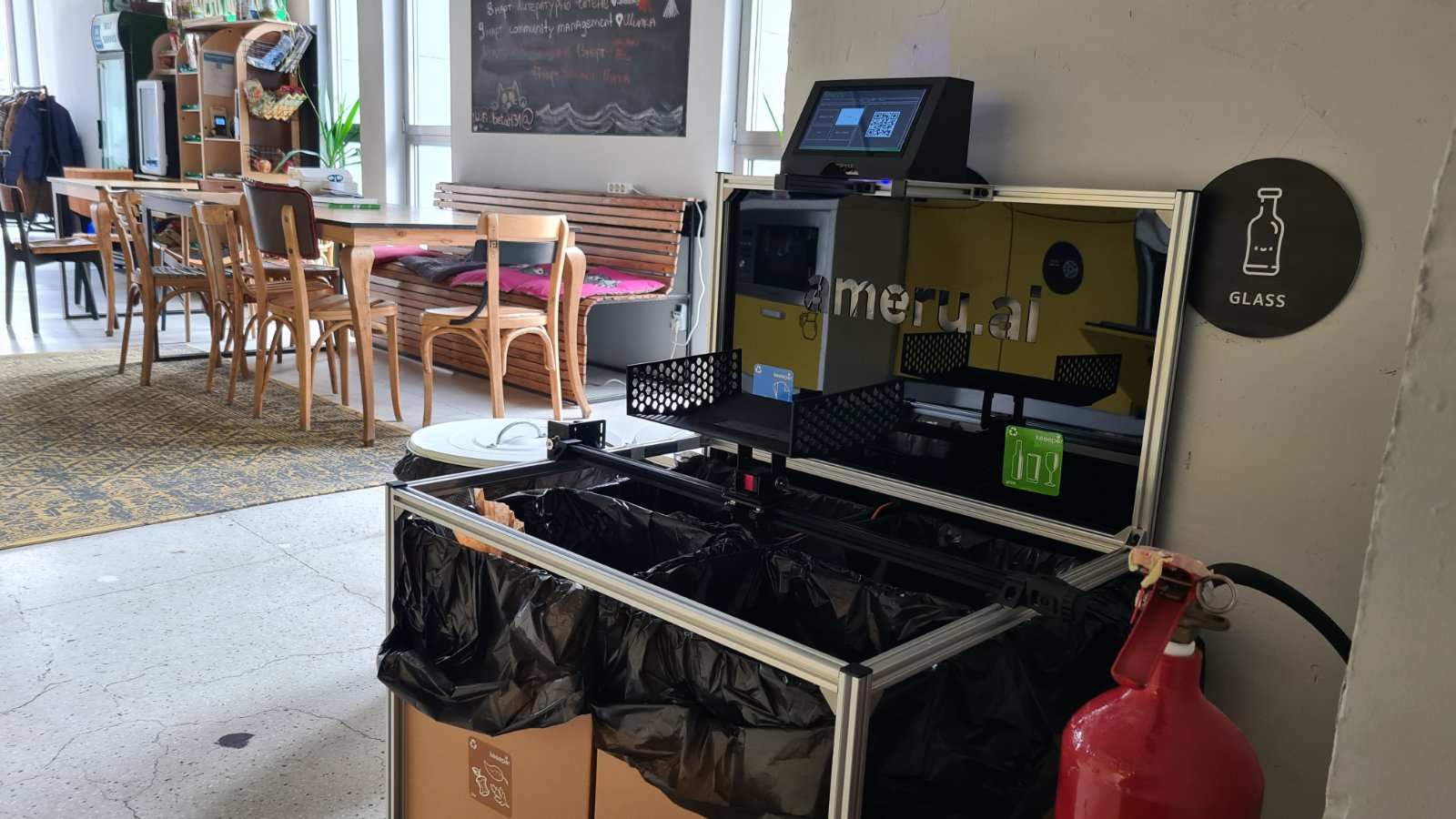
Results and Observations
Our results are organized into key areas of impact to provide a comprehensive understanding of the findings. Below is a snapshot of the Ameru.ai Waste Analytics Dashboard, illustrating the flow of captured waste at Betahaus:
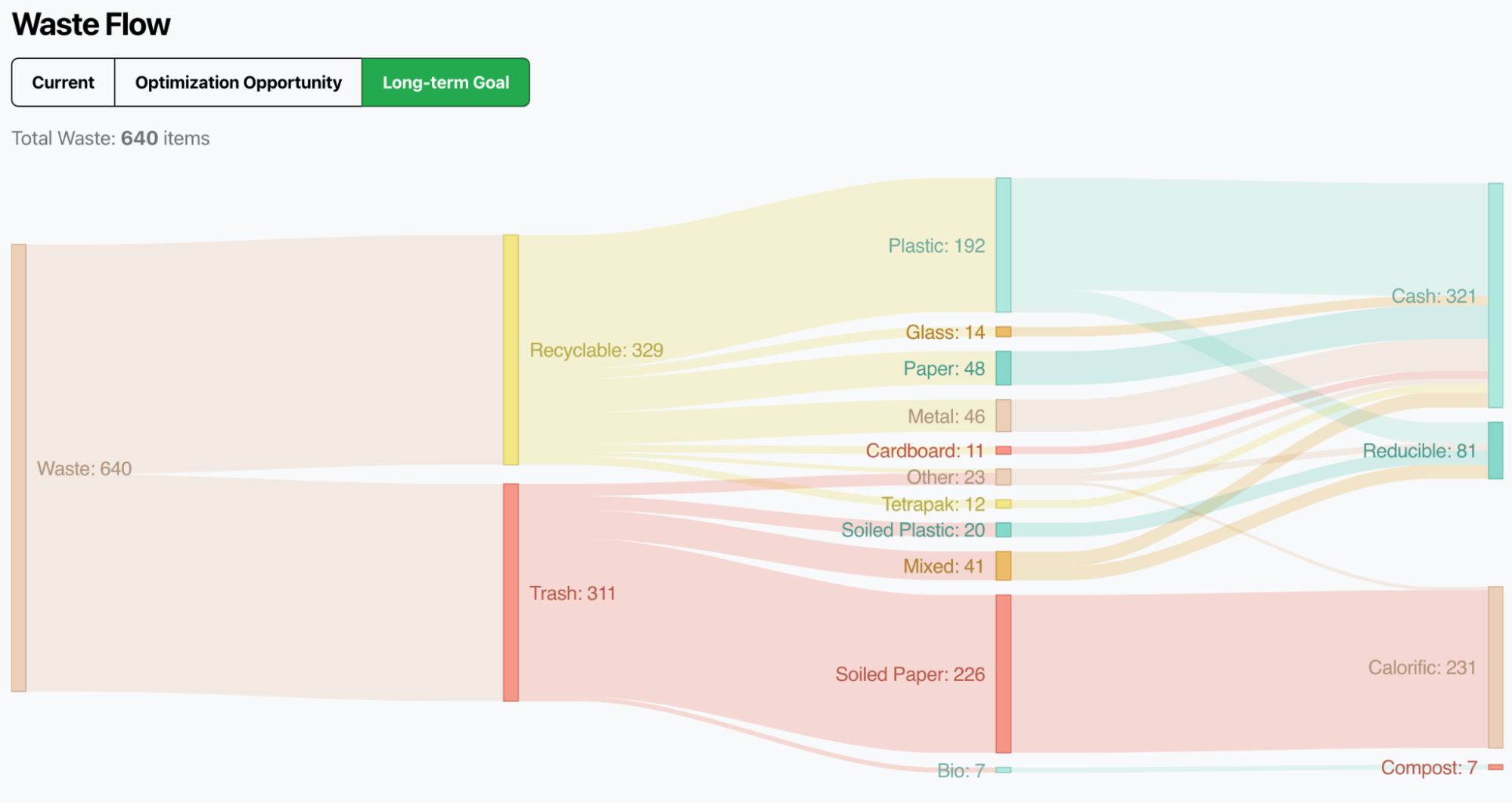
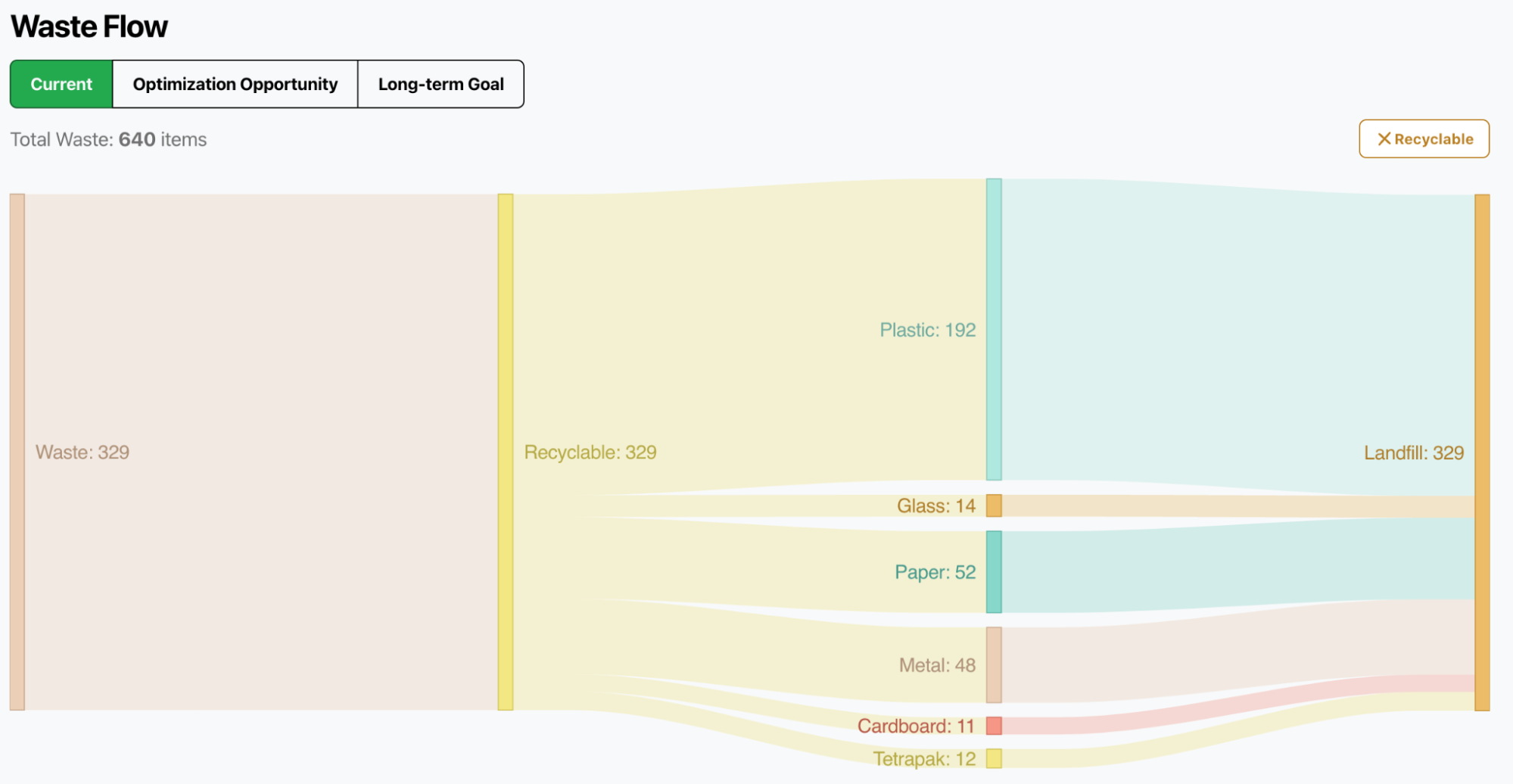
Key Metrics
During our study at Betahaus, we collected several key metrics. One noteworthy data point is the ratio of recyclable to total waste, which was recorded at 29.78%, resulting in an estimated annual waste diversion of 956.26 kilograms from landfills. This system not only contributed to substantial municipal landfill savings but also generated revenue from recyclable materials.
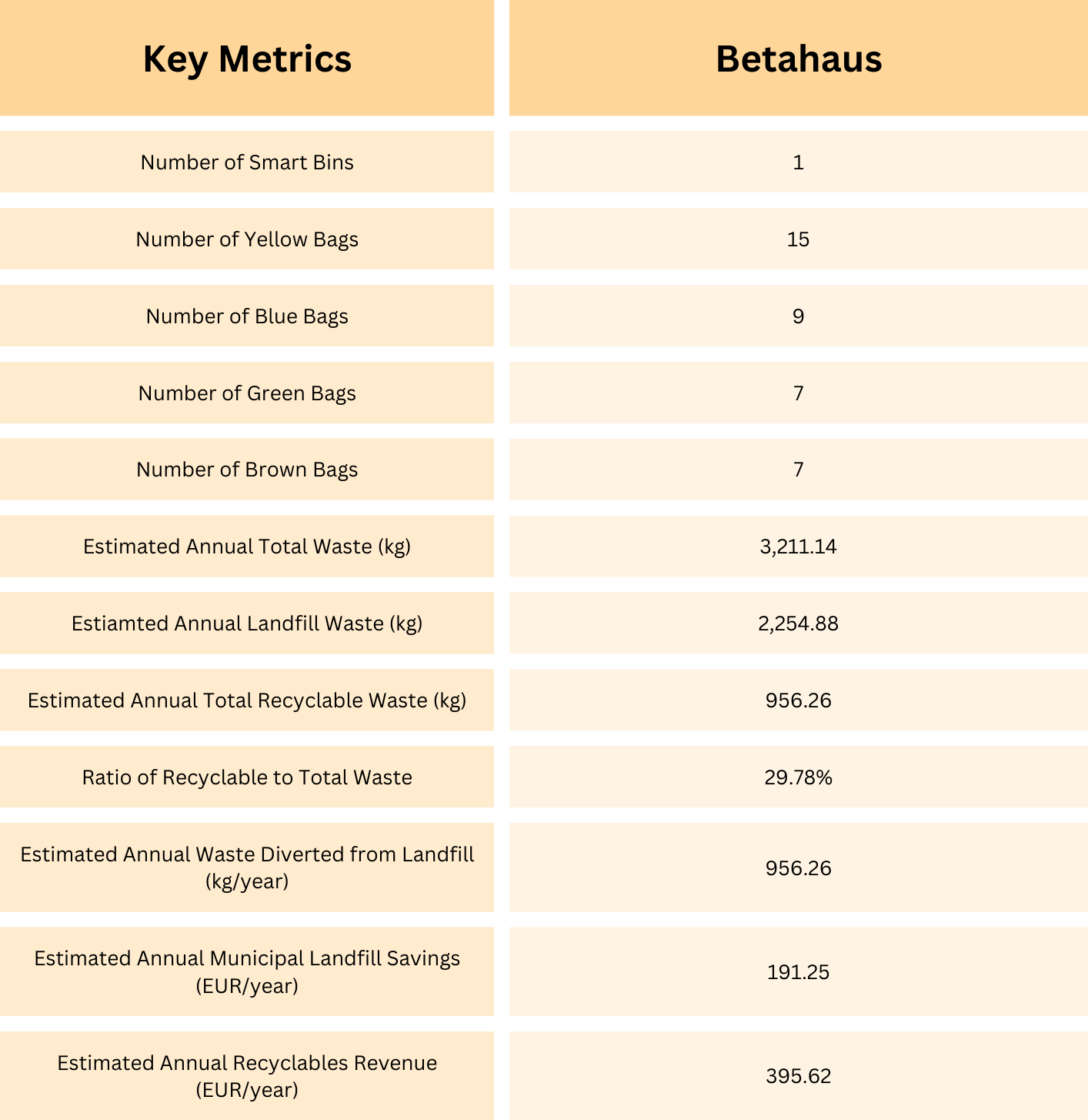
Material Breakdown
The following table provides a detailed breakdown of the waste material, bag type, number of items, weight, value, and volume:
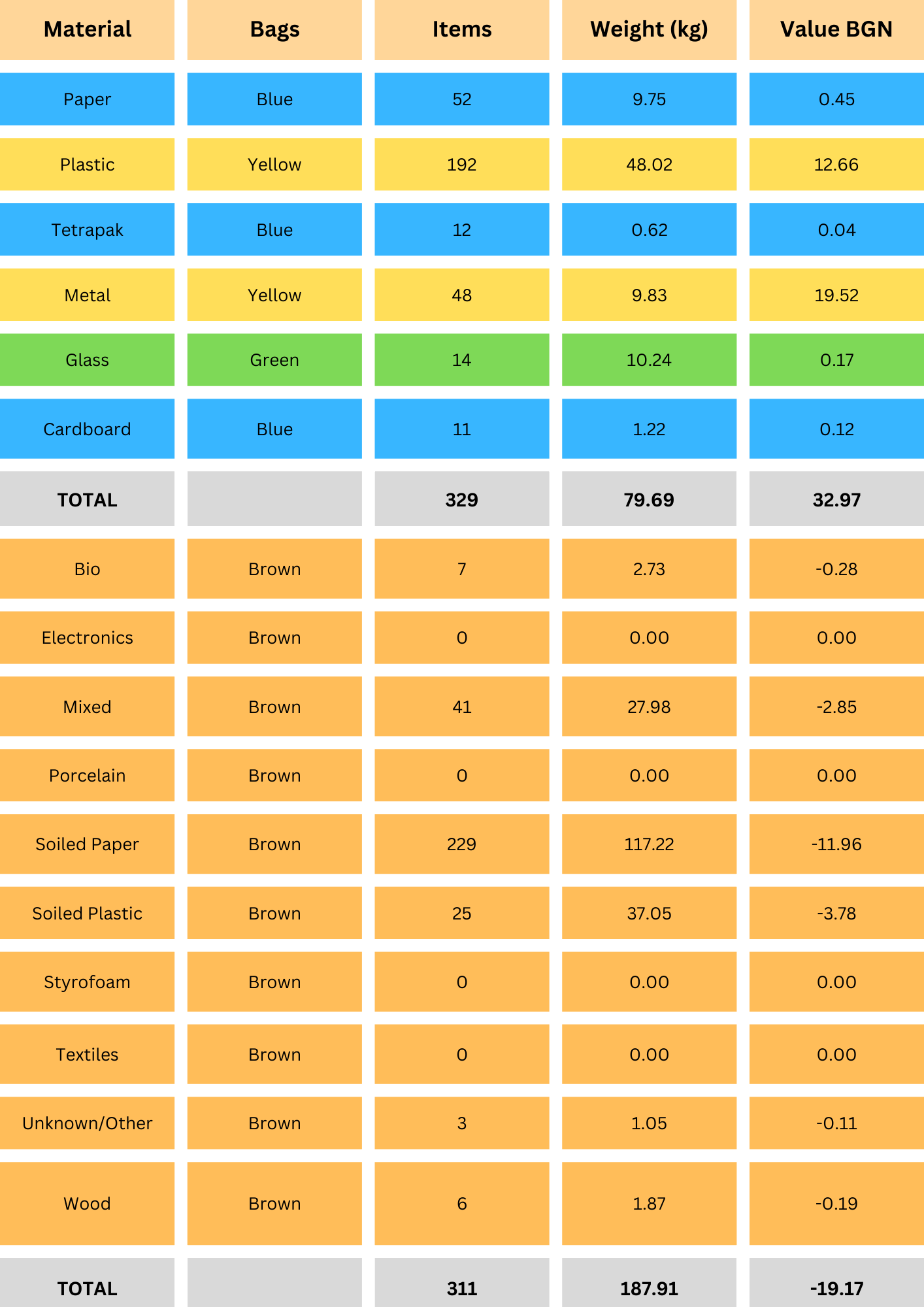
Waste Generation and Segregation
Over the course of the experiment, Betahaus produced a total of 640 waste items, with 329 items categorized as recyclable and 311 items categorized as general waste. The smart bins effectively segregated the waste, ensuring that recyclable materials were correctly sorted and sent for recycling. The incentive program noticeably improved the cleaning staff's motivation and participation, resulting in a marked upgrade in the waste management system. Our partnership with ECOPACK ensured that the waste was correctly sorted and sent for further separation at ECOPACK’s MRF (Materials Recovery Facility).
Waste Diversion Outcomes
The smart bins, paired with the incentive program, led to significant waste diversion results. The ratio of recyclable to total waste was recorded at 29.78%, amounting to an estimated annual waste diversion of 956.26 kilograms from landfills. This not only contributed to considerable municipal landfill savings for the municipality fo Sofia but also generated new revenue from recyclable materials for ECOPACK.
Conclusion and Future Outlook
Our case study emphasizes the effectiveness of a trust-building waste management system, bridging the gap between the stakeholders involved. The incentive program at HCS and the recycling process at ECOPACK, combined with the transparent disposal facilitated by Ameru.ai's smart bins, present an efficient, reliable solution for enhancing waste management at Betahaus. With a broader implementation, we foresee notable improvements in waste management, contributing to a greener, more sustainable future.
Interested in learning more about our innovative approach to waste management and how we can help you transform your waste management practices? Contact us at Ameru.ai for more information, and join us in our journey towards a more sustainable future.
